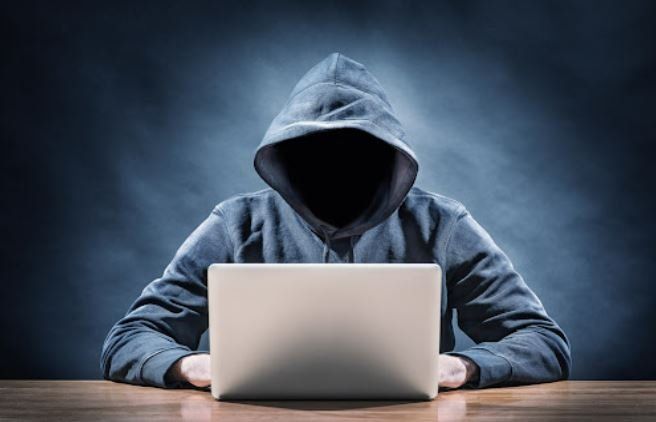
Today's Internet has made real-time global communication easier and more accessible than ever before. This advance offers powerful benefits, from the ability to work from home during the COVID-19 pandemic to streamable telemedicine and entertainment. Unfortunately, it also opens the door to an illegal behavior called cyberstalking.
Cyberstalking can actually involve any of several different crimes that result in the harassment, humiliation, or domination of vulnerable individuals. If someone has charged you with a cyberstalking offense, you need to understand what this charge means and how to defend yourself against it. Start with these frequently asked questions.
What Actions Count as Cyberstalking?
As a catchall term, cyberstalking refers to the use of digital platforms and communications to abuse an individual or group. This abuse can take many forms, from obsessive emails and online messages to constant efforts to track the unsuspecting target's digital communications or browsing habits.
Cyberstalkers may share sexually explicit images (either of themselves or of their targets) in emails and online websites. They may send sexually suggestive messages or pressure targeted individuals into sexual acts. A cyberstalker might even take an innocent image and alter it to add objectionable sexual content.
In some cases, cyberstalking focuses on financial control over the targeted individual. Cyberstalkers who gain access to people's online bank accounts or other financial systems may change passwords or user IDs, locking those people out of their accounts or even commandeering the funds for themselves.
Many cyberstalkers focus on destroying someone's reputation. They may pose defamatory information about that person on busy public Internet forums. They may also publicize the individual's private contact information (a technique called doxxing) or assume the person's identity to make self-destructive online posts.
What Specific Charges May Cyberstalking Incur?
Wisconsin doesn't actually classify cyberstalking as its own separate crime. Instead, it prosecutes cyberstalkers for the crimes they committed in the course of their online activities. These crimes already come with their own definitions and remedies according to Wisconsin law.
The four main types of charges a cyberstalker may face include harassment, unlawful use of telephone, unlawful use of computerized communication systems, and stalking. A single cyberstalking case could theoretically include any or even all of these offenses among the charges.
How Do Courts Penalize Cyberstalking in Wisconsin?
Because Wisconsin judges the specific crimes related to a cyberstalking case, the potential penalties in a particular cyberstalking case can vary accordingly. Depending on the severity of the offense, an accused person may have committed a misdemeanor, a felony, or both.
Simple harassment related to cyberstalking counts as a Class B misdemeanor. However, if the targeted individual had reason to fear bodily harm, the escalation to a Class A misdemeanor could mean up to nine months in prison and/or a $10,000 fine.
Stalking counts as a Class I felony unless the defendant illegally accessed or shared someone's personal data electronically — a Class H felony. The penalty for a Class I felony can include up to 3.5 years in prison, while Class H felonies can mean up to six years in prison. Both felonies may also impose a fine of up to $10,000.
How Do Attorneys Defend Their Clients Against Cyberstalking Charges?
On the surface, a cyberstalking case may appear cut and dried, especially if the evidence of misdeeds still exists in digital form. However, people can still face these accusations unjustly. If that scenario describes your case, your attorney may find ways to defend you successfully against the charge.
First and foremost, remember that the prosecution must still prove your guilt, no matter what the surface evidence might indicate or imply. For instance, your actions may actually fall under Constitutionally protected free speech instead of violating the law, in which the court may dismiss your case altogether.
The defense may also need to establish that your actions posed a credible threat against the individual accusing you of cyberstalking. People can and do lose their tempers and say or write empty threats as a result. If your online behavior didn't constitute a genuine threat to that person's wellbeing, it may not prove criminal in nature.
Sometimes the plaintiff in a cyberstalking case actually turns out to be the guilty party. Just as cyberstalking can involve impersonating others, an individual who levels cyberstalking charges against you may have assumed your identity to make you look guilty. If your attorney can reveal such actions in court, you may win your case.
Even a simple defense of mistaken identity may remove the threat of criminal charges and penalties in a cyberstalking case. The person accusing you of cyberstalking may genuinely have you confused with another person who actually committed the crime.
When you face a charge as serious as cyberstalking, you need legal counsel of uncommon skill and expertise. Contact Cohen Law Offices today to schedule a consultation so we can discuss your legal defense options in detail.
When Results Matter Most, Call Cohen Law First.
We’re not just any law firm — we’re
Northwest Wisconsin’s trusted criminal defense powerhouse. At Cohen Law Office, criminal defense isn’t one thing we do — it’s
the only thing we do.
Focused on YOU. Fighting for YOU. Always.
Need Help After Hours? We've Got Your Back.
If you're reaching out outside of our regular business hours,
don’t worry — just
click here, and one of our dedicated team members will get in touch with you as soon as possible.

